- Home
- Karen Traviss
Triple Zero Page 3
Triple Zero Read online
Page 3
He slept, or so he thought.
A warm weight pressed against him. His eyes jerked open and he remembered he was stranded on a perpetually overcast planet that didn’t even seem to be on the star charts, where the local species thought killing human kids was merely quality control.
Ordo’s stricken little face looked up into his.
“Kal…”
“You scared, son?”
“Yes.”
“Come on, then.” Skirata shifted position and Ordo scrambled up onto his lap, burying his face in his tunic as if he had never been held or comforted before. He hadn’t, of course.
The storm was getting worse. “The lightning can’t hurt you here.”
“I know, Kal.” Ordo’s voice was muffled. He wouldn’t look up. “But it’s just like the bombs going off.”
Skirata was going to ask him what he meant, but he knew in an instant that it would make him angry enough to do something stupid if he heard the answer. He hugged Ordo to him and felt the boy’s heart pounding in terror.
Ordo was doing pretty well for a four-year-old soldier.
They could learn to be heroes tomorrow. Tonight they needed to be children, reassured that the storm was not a battlefield, and so was nothing to fear.
The lightning illuminated the room in brief, fierce white light: Ordo flinched again. Skirata laid his hand on the boy’s head and ruffled his hair.
“It’s okay, Ord’ika,” he said softly. “I’m here, son. I’m here.”
Eight years later: Special Forces SO Brigade HQ Barracks, Coruscant, five days after the Battle of Geonosis
Skirata had been detained by Coruscant Security Force officers and for once in his life he hadn’t put up a fight.
Technically, he’d been arrested. And now he was the most relieved man in the galaxy, as well as the happiest. He jumped out of the police patrol speeder and winced at the sharp pain in his ankle as he hit the ground. He’d get that sorted out sooner or later, but now wasn’t the time.
“Wow, take a look at that,” the pilot said. “They’re holding off special ops squads there. You sure there’s only six of ’em?”
“Yeah, six is overkill,” Skirata said, discreetly patting his pockets and sleeves to make sure the assorted tools of his trade were in place and ready for use. It was just habit. “But they’re probably scared.”
“They’re scared?” The pilot snorted. “Hey, you know Fett’s dead? Windu topped him.”
“I know,” Skirata said, fighting the urge to ask if he also knew what had happened to little Boba. If the kid was still alive, he needed a dad. “Let’s hope the Jedi don’t have a problem with all of us Mando’ade.”
The pilot closed the hatch, and Skirata limped across the barracks landing pad. Jedi general Iri Camas, hands on hips with his brown robes flapping in the breeze, watched in a way that Skirata could only describe as suspicious. Two clone troopers waited with him. Skirata thought the Jedi should get his long white hair cut: it wasn’t practical or becoming for a soldier to wear his hair to his shoulders.
“Thank you for responding, Sergeant,” Camas said. “And I apologize for the manner of your return. I realize your contract is completed now, so you owe us nothing.”
“Anytime,” Skirata said.
He noted the blasterproof assault shields erected across the main entrance: four squads of Republic Commandos stood behind them, DC-17 rifles ready. He glanced up at the roof, and there were two commando sniper teams spread out along the parapet as well. Yes, if a bunch of Null-class Advance Recon Commandos didn’t want to cooperate, then it would take a lot of equally hard men to persuade them otherwise. And he knew that none of the commandos would be happy about being ordered in to do the persuading. They were brothers, even if the ARCs were rather different men at heart.
Skirata shoved his hands in his jacket pockets and focused on the doors. “So what started all this, then?”
Camas shook his head. “They’re scheduled to be chilled down now that they’re back from Geonosis, because nobody can command them.”
“I can.”
“I know. Please, get them to stand down.”
“They’re even more of a handful than the regular Alpha-batch ARCs, aren’t they?”
“I know that, Sergeant.”
“So you wanted the hardest troops you could buy to take on the enemy, and then you got cold feet when they turned out to be too hard.”
“Sergeant—”
“I’m a civilian at the moment, actually.”
Camas took a silent breath. “Can you get them to surrender? They’ve shut down the whole barracks.”
“I can.” Skirata wondered if the clone troopers were looking sideways at him, or in the direction they appeared to be facing. You could never tell with their helmets on. “But I won’t.”
“I really don’t want any casualties. Are you holding out for an increased fee?”
Skirata was a mercenary, but the suggestion insulted him. Camas couldn’t be expected to know how he felt about his men, though. He made an effort not to be annoyed. “Enlist me in the Grand Army of the Republic and give me back my lads. Then we’ll see.”
“What?”
“They’re terrified of chill-down, that’s all. You have to understand what happened to them as kids.” Camas gave him an odd look. “And don’t even think about mind influence, General.”
Skirata didn’t give a mott’s backside about pay. Eight years spent on Kamino training special forces for the Republic’s clone army had made him wealthy, and if they wanted to press more credits on him, that was fine; he’d have a good use for them. But what he wanted most right then, and what had made him happy to return with the CSF officers instead of showing them just how handy he was with a fighting knife, was not being safe in a soft civilian life when his men were fighting a desperate, bloody war.
And he needed to be back with them. He hadn’t even had the chance to say good-bye when they suddenly shipped out to Geonosis. He’d lasted five miserable days without them, days without purpose, days without family.
“Very well,” Camas said. “Special adviser status. I can authorize that, I suppose.”
Skirata couldn’t see the commandos’ faces behind their visors, but he knew they’d be watching him carefully. He recognized some of the paint schemes on their Katarn armor: Jez from Aiwha-3 Squad, and Stoker from Gamma, and Ram from Bravo up on the roof. Incomplete squads: high casualties on Geonosis, then. His heart sank.
He began walking forward. He got to the blaster shields, and Jez touched his glove to his helmet. “Nice to see you back so soon, Sarge.”
“Couldn’t stay away,” Skirata said. “You okay?”
“It’s a laugh a minute, this job.”
Camas called out, “Sergeant? Sergeant! What if they open fire—”
“Then they open fire.” Skirata reached the doors and turned his back on them for a few moments, unafraid. “Do we have a deal? Or do you want me holed up in there with them? Because I won’t be coming out unless you guarantee them no disciplinary action.”
It struck Skirata that Camas might be the one to fire on him right then. He wondered if his commandos would obey that order if it were given. He wouldn’t have minded if they had. He’d taught them to do their job, regardless of their own feelings.
“You have my word,” Camas said. “Consider yourself in the Grand Army. We’ll discuss how we’re going to deploy you and your men later. But first let’s get everyone back to normal, shall we, please?”
“I’ll hold you to every last word, General.”
He waited at the doors for a few moments. The two sheets of reinforced durasteel parted slowly. He walked in, relieved, and home again at last.
No, Camas really needed to understand what had happened to these men as young boys. He had to, if he was going to cope with the war that had now been unleashed.
It wouldn’t just be fought on someone else’s planet. It would be fought in every corner of the galaxy, in ever
y city, in every home. It was a war not just of territories, but of ideologies.
And it was wholly outside Skirata’s Mandalorian philosophy: but it was his war regardless, because his men were its instrument whether they liked it or not.
One day, he would give them back something the Kaminoans and the Republic had stolen from them. He swore it.
“Ord’ika!” he called. “Ordo? You’ve been a naughty boy again, haven’t you? Come here…”
Chapter Two
Yes, I know I should be directing the battle from the ship. Yes, I know we could reduce the surface of Dinlo to molten slag from orbit. But we can extract more than a thousand men, and that’s worth doing. I asked for volunteers and I got the whole ship’s crew and every man in Improcco Company, and not from blind obedience. Let me try.
—General Tur-Mukan, in a signal to General Iri Camas, Battle Group Command, Coruscant, copied to General Vaas Ga, Commanding Officer, Sarlacc Battalions, Forty-first Elite Infantry, Dinlo
Republic assault ship Fearless,
approaching Dinlo, Expansion–Bothan Border,
367 days after Geonosis
General Etain Tur-Mukan watched the HNE news feed with mixed feelings. On one hand the events at home saddened her: on the other, they reminded her what the war was about.
“Fifteen soldiers and twelve civilian support staff are reported dead after today’s second bomb blast, this time at a GAR logistics base. No group has yet claimed responsibility for the attack, but a security forces spokesman said today that the proximity to tomorrow’s first anniversary of the Battle of Geonosis was significant. It brings the total number of deaths in apparent Separatist terror attacks this year to three thousand and forty. The Senate has pledged to smash their networks…”
Clone Commander Gett stood at her side, hands clasped behind his back as they waited on the repulsor platform that shunted ammo boxes from the magazine to the hangar deck.
“No way to die,” he said.
Etain turned to look at the troops around them. “Neither is this.”
They were set to go. Fearless was half an hour out from Dinlo and the gunship pilots were making their way down the passage from the flight briefing to carry out their presortie checks, yellow-trimmed helmets tucked under one arm. They all held the helmets exactly the same way, no doubt the result of thorough drill. General Etain Tur-Mukan noted that.
She stood back from the hatch to let them through and got a salute from each as he passed. One glanced at the somewhat unconventional weapon slung across her shoulder and grinned. He indicated the huge LJ-50 concussion rifle that almost dwarfed her.
“Does that thing light up blue, General?”
“Only if you’re on the receiving end, trooper,” she said, and gave him her most reassuring smile.
She knew they were afraid, because a commando called Darman had taught her that only idiots didn’t fear combat. Fear was an asset, an incentive, a tool. She knew how to use it now, even if she didn’t embrace it.
Today she needed to tell Improcco Company that. They knew it already, but this was her first mission with them, and she had learned that a little openness with the troops went a long way. And she wanted them to know that she saw them for the human beings they were. Meeting Republic commandos on Qiilura for the first time had been a painful revelation for her.
“Are you okay with that, General?” Gett seemed to be able to guess what she was thinking almost all the time, and she wondered briefly if telepathy was in their genetic mix. Then she reminded herself that men who all looked the same learned to be very, very sensitive to tiny behavioral cues. “We’ve got a DC-15 if you prefer. Nice piece of kit.”
The LJ-50 was exhaustingly heavy. She’d developed her arm muscles in the last year, but it still took some handling.
“Some very competent gentlemen taught me to use a conc rifle,” she said. “They persuaded me to keep my lightsaber for close-combat. Besides, the LJ’s got a four-meter spread at a thirty-meter range. I’m a great believer in efficiency over style.”
Gett smiled. He knew the stories about the Qiilura mission. They all did, it seemed. Gossip traveled at light speed in a closed community, and it’d had months to make the rounds. “I understand Omega are okay and on TIOPS in the Outer Rim right now.”
“It’s kind of you to check for me, Commander.” She had to ask. “What’s TIOPS?”
“Captain Ordo makes a point of giving your signals priority.” He lowered his voice. “Traffic interdiction operations. Boarding the bad guys’ vessels.”
“Thank you. I’ve never met Ordo, but he does seem to take care of me very well.”
“One of Kal Skirata’s Null ARCs.”
“Oh, Kal again…”
“You’ve never met him, have you?”
“No, but I hope I do. I feel as if he’s been walking behind me for a long time.” She looked around the hangar and noted there was one platoon still missing. She’d wait. She needed them all to hear this. “I envy his ability to inspire people.”
Gett said nothing. Tact, perhaps, or merely nothing to add; Etain feared that she still projected her own doubts onto others. She was a Jedi Knight now. She had passed her trials on Qiilura with Master Arligan Zey, working under deep cover with him to mobilize the colonists against the remnants of the Neimoidian and Trandoshan occupation. It was silent, grim, secret work, and even though a Republic garrison had now been established on the planet, she still felt that the dwindling population of native Gurlanins and the human farmers were set on a collision course. The Republic had promised the Gurlanins that they would remove the human colony from their world.
So far, they hadn’t.
It would have been a simple case of broken promises—like many others in the galaxy’s history—had the Gurlanins not been a race of shapeshifting predators, working as spies for the Republic. This was their bargain: they would provide their unique espionage skills if the farmers stopped driving away the prey on which Gurlanins depended. As far as the Gurlanins were concerned, that meant the removal of the human settlements on Qiilura.
Etain knew Gurlanins made bad enemies. They were more than capable of killing farmers, as they’d proved when they exacted revenge on informers on Qiilura. But the war came first, and diplomacy had to take a backseat.
“All present and correct now, General,” Gett said. He flicked the controls of the repulsor platform and it lifted them about a meter above the deck, so that the assembled company of 144 clone troopers could see and hear her clearly. There was no noise apart from the occasional clack of armor plates as one soldier brushed too close to another, or the quiet clearing of throats. They didn’t chat.
Gett still defaulted to drill. “Company—a… ten… shun!”
The chunkkk of armor and rifles being slapped hard against chest plates was one synchronous noise. Etain waited a few moments and concentrated on projecting her voice across the cavern of the hangar. She hadn’t been trained as an officer. It didn’t come naturally.
They needed her to be one, though, just as Darman had when he had expected all Jedi to be competent commanders. She inhaled slowly and felt her voice lift from her stomach through her chest.
“Stand easy,” she said. “And buckets off.”
The clack and hiss of helmets being removed was a little more ragged than the snap to attention. They weren’t expecting that. She stared down into identical faces, reaching out into the Force to get some sense of who they might be and their state of mind, much as she had with Omega. It was a complex tapestry, and yes, there was fear; there was an intense sense of belonging and focus, too. And there was not a trace of the hopeful child that had once so confused her when she felt Darman long before she saw him for the first time.
Clones grew fast and learned even faster. A year at war—real war, not just fatally realistic training—had made them a lot more worldly-wise and less idealistic.
“We have two battalions pinned down on Dinlo,” she said. “You’ve seen the op
order. We open up that exit route for them by cutting through droid lines so they can reach the extraction point. You’ll have air support, but we’ll be relying predominantly on your infantry skills.” She paused. They listened politely. Whatever focus they had appeared to come not from her but from something inside them. “I’m not going to shoot you any line about glory, because this is about survival. That’s my first rule as a Jedi, you know that? Survive. And so should it be yours. I don’t want any wild sacrifices. I want to come out of this with as many of you and the Forty-first alive as possible—not because you’re assets we need to use again, but because I don’t want you to die.”
She felt the silence change, not in quality but in the realization that shivered almost imperceptibly through the Force. This wasn’t how they were used to seeing themselves.
“We weren’t exactly queuing up for it ourselves, ma’am,” said a pilot, one boot on the step to his cockpit. There was a ripple of laughter, and Etain laughed, too.
“I’ll try to keep my arc of fire under control, then,” said Etain, and patted the Stouker. She glanced at Gett’s forearm; he tilted it so that she could see his chrono readout. “Ramps down in twenty-four minutes. Dismissed.”
The men broke up, replacing their helmets and falling into platoons and squads to make an orderly path to their assigned craft. The squadron of LAAT/c gunships had been stripped out to create troop space on their cargo decks. Gett inspected the interior of his helmet, holding it in both gloved hands.
“Aren’t you supposed to wish that the Force be with them, General?”
Etain liked Gett. He didn’t treat her as an omniscient military genius but as just another being stuck in a hard place without a lot of choices. She could hear a faint sound coming from his helmet’s audio feed; when she concentrated, she could hear singing, and so held out her hand for the helmet. She’d tried on Atin’s once and been stunned by the welter of data it flung at the wearer. Helmet held close to her head, she could make out strong male voices, a choir of them, singing an anthem she had heard snatches of but rarely had the chance to listen to: “Vode An.”

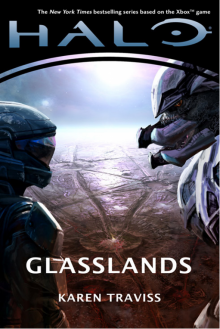 Halo: Glasslands
Halo: Glasslands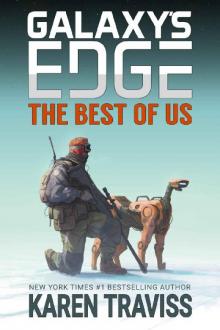 The Best of Us
The Best of Us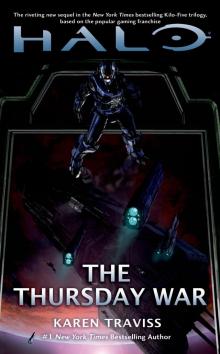 Halo: The Thursday War
Halo: The Thursday War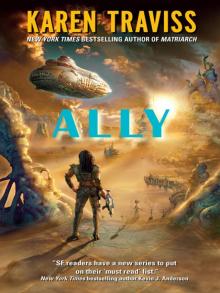 Ally
Ally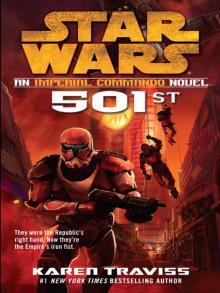 501st: An Imperial Commando Novel
501st: An Imperial Commando Novel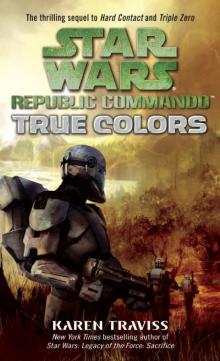 True Colors
True Colors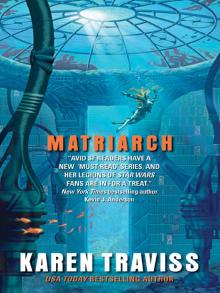 Matriarch
Matriarch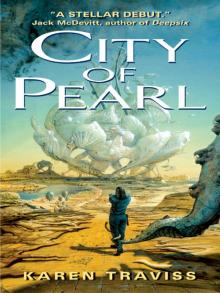 City of Pearl
City of Pearl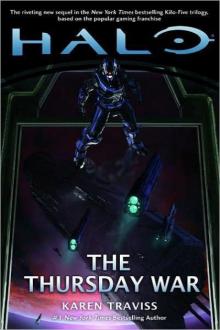 The Thursday War
The Thursday War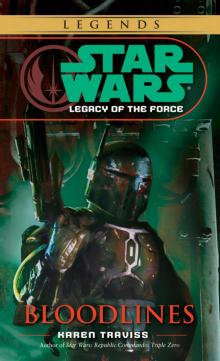 Bloodlines
Bloodlines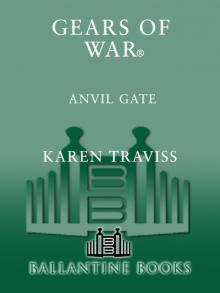 Gears of War: Anvil Gate
Gears of War: Anvil Gate Crossing the Line
Crossing the Line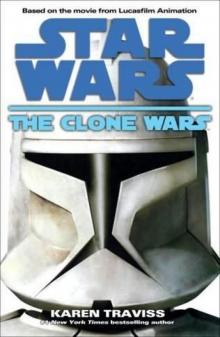 Star Wars - The Clone Wars 01
Star Wars - The Clone Wars 01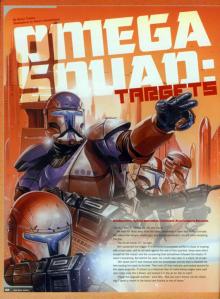 Omega Squad: Targets
Omega Squad: Targets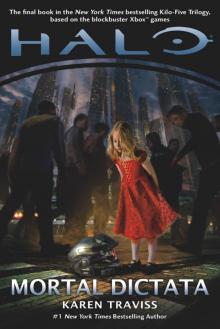 Halo®: Mortal Dictata
Halo®: Mortal Dictata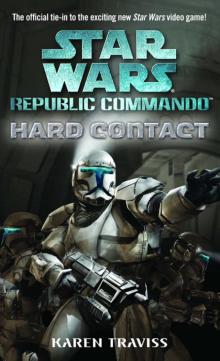 Hard Contact
Hard Contact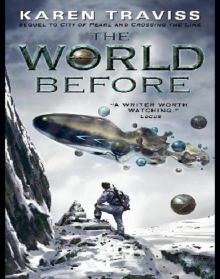 The World Before
The World Before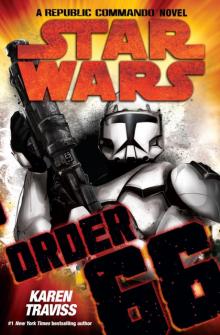 Order 66
Order 66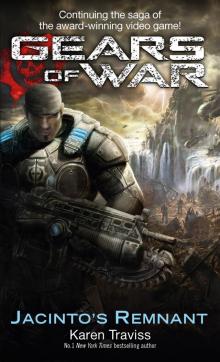 Gears of War: Jacinto's Remnant
Gears of War: Jacinto's Remnant Sacrifice
Sacrifice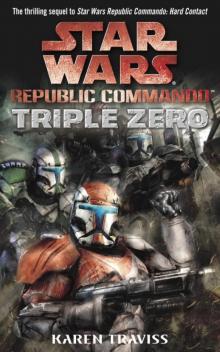 Triple Zero
Triple Zero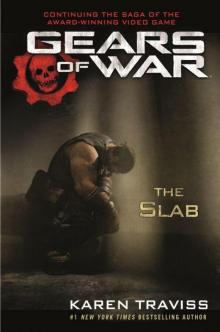 Gears of War: The Slab (Gears of War 5)
Gears of War: The Slab (Gears of War 5)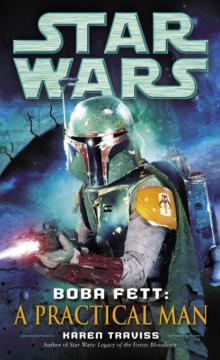 NEW JEDI ORDER: BOBA FETT: A PRACTICAL MAN
NEW JEDI ORDER: BOBA FETT: A PRACTICAL MAN Going Grey
Going Grey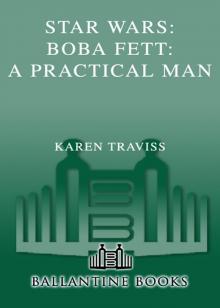 Star Wars: Boba Fett: A Practical Man
Star Wars: Boba Fett: A Practical Man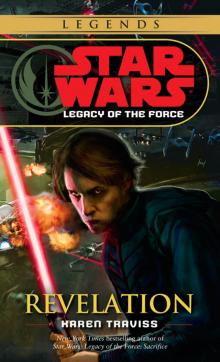 Revelation
Revelation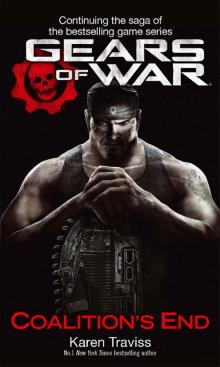 Coalition's End
Coalition's End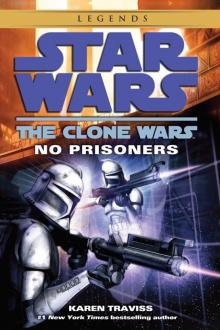 No Prisoners
No Prisoners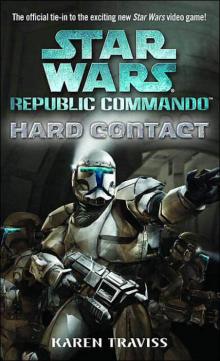 Star Wars Republic Commando: Hard Contact
Star Wars Republic Commando: Hard Contact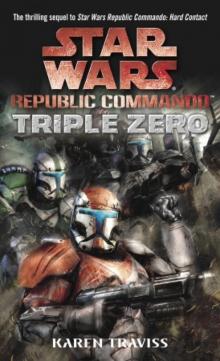 Star Wars: Republic Commando: Triple Zero rc-3
Star Wars: Republic Commando: Triple Zero rc-3 The Clone Wars
The Clone Wars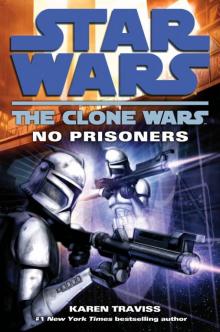 The Clone Wars: No Prisoners
The Clone Wars: No Prisoners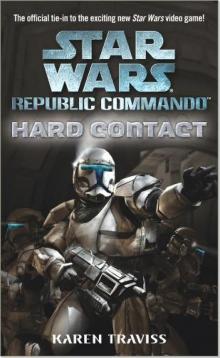 Star Wars: Republic Commando: Hard Contact rc-1
Star Wars: Republic Commando: Hard Contact rc-1 Judge
Judge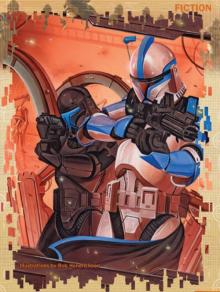 Omega Squad: Targets rc-4
Omega Squad: Targets rc-4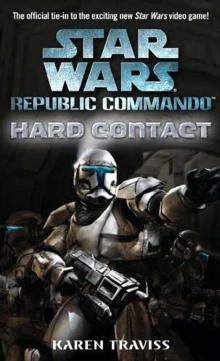 Star Wars - Republic Commando - Hard Contact
Star Wars - Republic Commando - Hard Contact